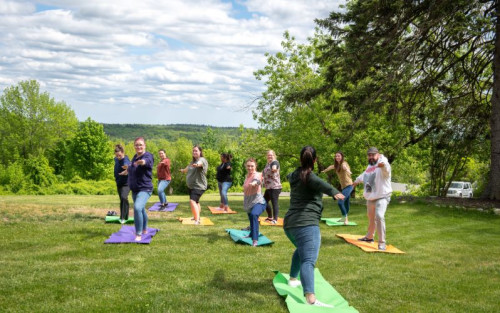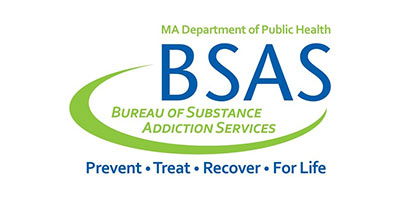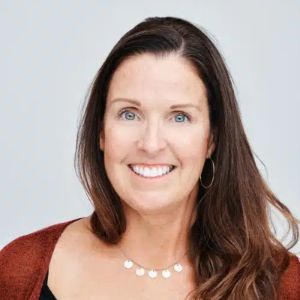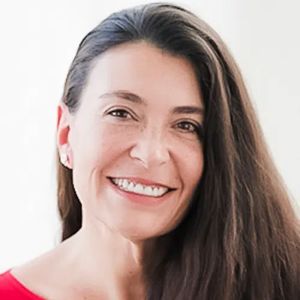








Spring Hill Recovery Center
Verified Center
This provider's information has been quality-checked by Recovery.com's Research Team for accuracy and completeness, including center verification through appropriate third-party organizations.
Treatment Focus
This center treats substance use disorders and co-occurring mental health conditions. Your treatment plan addresses each condition at once with personalized, compassionate care for comprehensive healing.
Primary Level of Care
Offering intensive care with 24/7 monitoring, residential treatment is typically 30 days and can cover multiple levels of care. Length can range from 14 to 90 days typically.
Treatment Focus
This center treats substance use disorders and co-occurring mental health conditions. Your treatment plan addresses each condition at once with personalized, compassionate care for comprehensive healing.
Primary Level of Care
Offering intensive care with 24/7 monitoring, residential treatment is typically 30 days and can cover multiple levels of care. Length can range from 14 to 90 days typically.
Provider's Policy
If you are looking for a drug rehab program for you or a loved one, it’s important to verify your insurance first. This helps you avoid one of the biggest stressors that can come with finding treatment: unexpected high costs. We provide fast and free insurance verification.
Spring Hill Recovery Center
Spring Hill Recovery Center
About Spring Hill Recovery Center
Rated by Newsweek as Top 10 Addiction Treatment Center in Massachusetts
Spring Hill Recovery Center offers lasting solutions for recovery from addiction and co-occurring mental health disorders. Their residential program gets at the roots of addiction with trauma-informed care and a community of support. They use a holistic approach and evidence-based treatments, including medication-assisted treatment for eligible clients with alcohol or opioid use disorders. Care is centered on each client’s experience with addiction and provides tailored recovery plans.
Embrace a Holistic Path to Recovery
Spring Hill’s programs treat the whole person, not just the addiction, focusing on the mind, body, and spirit. Their approach is rooted in solutions that are proven to be effective, such as cognitive behavioral therapy (CBT), motivational interviewing (MI), dialectical behavior therapy (DBT), and solution-focused therapy (SFT). Clients participate in a full-day curriculum of group sessions, and meet weekly or more 1:1 with their primary clinician. Spring Hill also offers alternative treatments including art therapy, music therapy, yoga classes, and meditation.
Lean on a Full Continuum of Care
Spring Hill can connect clients who require medical detox services before beginning residential treatment with their sister facility just outside Boston. When detox is complete, Spring Hill will arrange for transportation to begin residential treatment. Clients needing ongoing support can attend one of Spring Hill’s outpatient programs in Quincy. This includes day treatment, intensive outpatient, and standard outpatient options. They can also help arrange sober living nearby for safe, substance-free housing while receiving outpatient care.
Begin to Thrive in Peaceful Woodlands
Spring Hill provides a retreat-like setting that allows clients to focus on healing. The remote woodland location is less than 60 miles from Boston and surrounded by tree-covered hills and open fields. The campus has a family-like atmosphere, with men and women residing in separate units. Clients have 24-hour access to a fully equipped fitness center, and chefs provide nutritious, homemade meals three times a day plus snacks.
Highlights from the Center
Highlights
These highlights are provided by and paid for by the center.
Nature Lovers
Wellness Emphasis
Private Rooms Available
Gender Separate Housing
Center Overview
Treatment Focus
This center treats substance use disorders and co-occurring mental health conditions. Your treatment plan addresses each condition at once with personalized, compassionate care for comprehensive healing.
Joint Commission Accredited
The Joint Commission accreditation is a voluntary, objective process that evaluates and accredits healthcare organizations (like treatment centers) based on performance standards designed to improve quality and safety for patients. To be accredited means the treatment center has been found to meet the Commission's standards for quality and safety in patient care.

Spring Hill Recovery Center
Insurance Accepted
Cash Pay Rates
Estimated Cash Pay Rate
Center pricing can vary based on program and length of stay. Contact the center for more information. Recovery.com strives for price transparency so you can make an informed decision.




More Ark Behavioral Health Centers
Recovery.com Verified Listing
Recovery.com verified that the name, location, contact information and license to operate for this treatment provider are valid and up-to-date.

Bureau of Substance Addiction Services Certified

CARF Accredited

Joint Commission Accredited
Recovery.com is an independent, third-party mental health resource. Verification does not imply endorsement and does not guarantee the quality of treatment services.
Meet Your Care Team

Colleen Cole
Executive Director
MA, CAGS

Ximena Sanchez-Samper
Medical Director
MD

John Gerard
Behavioral Tech Manager

Maybel
Stress Management Specialist

Tiffany Miller
Case Management Supervisor

Tricia Rapp
Nurse Practitioner
FNP

Keyla Cornier
Nursing Surpervisor
LPN
Your Care Options
Specializations
Day Treatment
In a PHP, patients live at home but follow an intensive schedule of treatment. Most programs require you to be on-site for about 40 hours per week.
Older Adults
Addiction and mental health treatment caters to adults 55+ and the age-specific challenges that can come with recovery, wellness, and overall happiness.
Alcohol
Using alcohol as a coping mechanism, or drinking excessively throughout the week, signals an alcohol use disorder.
Cocaine
Cocaine is a stimulant with euphoric effects. Agitation, muscle ticks, psychosis, and heart issues are common symptoms of cocaine abuse.
Drug Addiction
Drug addiction is the excessive and repetitive use of substances, despite harmful consequences to a person's life, health, and relationships.
Heroin
Heroin is a highly addictive and illegal opioid. It can cause insomnia, collapsed veins, heart issues, and additional mental health issues.
Holistic
A non-medicinal, wellness-focused approach that aims to align the mind, body, and spirit for deep and lasting healing.
Midlife Adults
For adults ages 40+, treatment shifts to focus on the unique challenges, blocks, and risk factors of their age group, and unites peers in a similar community.
Who We Treat
Older Adults
Addiction and mental health treatment caters to adults 55+ and the age-specific challenges that can come with recovery, wellness, and overall happiness.
Executives
Executive treatment programs typically directly support the needs of people who manage businesses and may provide flexible schedules and office space to allow work during treatment.
Young Adults
Emerging adults ages 18-25 receive treatment catered to the unique challenges of early adulthood, like college, risky behaviors, and vocational struggles.
LGBTQ+
Addiction and mental illnesses in the LGBTQ+ community must be treated with an affirming, safe, and relevant approach, which many centers provide.
Men and Women
Men and women attend treatment for addiction in a co-ed setting, going to therapy groups together to share experiences, struggles, and successes.
Midlife Adults
For adults ages 40+, treatment shifts to focus on the unique challenges, blocks, and risk factors of their age group, and unites peers in a similar community.
Professionals
Busy, high-ranking professionals get the personalized treatment they need with greater accommodations for work, privacy, and outside communication.
Treatment Services
Day Treatment
In a PHP, patients live at home but follow an intensive schedule of treatment. Most programs require you to be on-site for about 40 hours per week.
Intensive Family Program
Some rehabs offer intensive programs for loved ones. Group and individual therapy sessions help everyone heal, and improve family dynamics.
Intensive Outpatient Program
In an IOP, patients live at home or a sober living, but attend treatment typically 9-15 hours a week. Most programs include talk therapy, support groups, and other methods.
Outpatient
During outpatient rehab, patients attend a structured treatment program while continuing to live at home.
Residential
In a residential rehab program, patients live onsite, with access to daily treatment and 24-hour care. An average stay is 30-90 days.
Retreat
These curated experiences promote physical, mental, and spiritual well-being, and provide a break from the busy pace of daily life.
Approaches
Evidence-Based
A combination of scientifically rooted therapies and treatments make up evidence-based care, defined by their measured and proven results.
Holistic
A non-medicinal, wellness-focused approach that aims to align the mind, body, and spirit for deep and lasting healing.
Individual Treatment
Individual care meets the needs of each patient, using personalized treatment to provide them the most relevant care and greatest chance of success.
Personalized Treatment
The specific needs, histories, and conditions of individual patients receive personalized, highly relevant care throughout their recovery journey.
Therapies
1-on-1 Counseling
Patient and therapist meet 1-on-1 to work through difficult emotions and behavioral challenges in a personal, private setting.
Meditation & Mindfulness
A practiced state of mind that brings patients to the present. It allows them to become fully aware of themselves, their feelings, and the present moment.
Art Therapy
Visual art invites patients to examine the emotions within their work, focusing on the process of creativity and its gentle therapeutic power.
Family Therapy
Family therapy addresses group dynamics within a family system, with a focus on improving communication and interrupting unhealthy relationship patterns.
Life Skills
Teaching life skills like cooking, cleaning, clear communication, and even basic math provides a strong foundation for continued recovery.
Motivational Interviewing and Enhancement Therapy (MET)
This approach is based on idea that motivation to change comes from within. Providers use a conversational framework that may help you commit to recovery.
Music Therapy
Singing, performing, and even listening to music can be therapeutic. Music therapy sessions are facilitated by certified counselors.
Conditions We Treat
Personality Disorders
Personality disorders destabilize the way a person thinks, feels, and behaves. If untreated, they can undermine relationships and lead to severe distress.
ADHD, ADD
ADHD is a common mental health condition caused by dopamine imbalance. Common symptoms include inattention, hyperactivitiy, and impulsivity.
Anxiety
Anxiety is a common mental health condition that can include excessive worry, panic attacks, physical tension, and increased blood pressure.
Bipolar
This mental health condition is characterized by extreme mood swings between depression, mania, and remission.
Depression
Symptoms of depression may include fatigue, a sense of numbness, and loss of interest in activities. This condition can range from mild to severe.
Eating Disorders
An eating disorder is a long-term pattern of unhealthy behavior relating to food. Most people with eating disorders have a distorted self-image.
Obsessive Compulsive Disorder (OCD)
OCD is characterized by intrusive and distressing thoughts that drive repetitive behaviors. This pattern disrupts daily life and relationships.
Post Traumatic Stress Disorder
PTSD is a long-term mental health issue caused by a disturbing event or events. Symptoms include anxiety, dissociation, flashbacks, and intrusive thoughts.
Stress
Stress is a natural reaction to challenges, and it can even help you adapt. However, chronic stress can cause physical and mental health issues.
Substances We Treat
Alcohol
Using alcohol as a coping mechanism, or drinking excessively throughout the week, signals an alcohol use disorder.
Benzodiazepines
Benzodiazepines are prescribed to treat anxiety and sleep issues. They are highly habit forming, and their abuse can cause mood changes and poor judgement.
Chronic Relapse
Consistent relapse occurs repeatedly, after partial recovery from addiction. This condition requires long-term treatment.
Co-Occurring Disorders
A person with multiple mental health diagnoses, such as addiction and depression, has co-occurring disorders also called dual diagnosis.
Cocaine
Cocaine is a stimulant with euphoric effects. Agitation, muscle ticks, psychosis, and heart issues are common symptoms of cocaine abuse.
Drug Addiction
Drug addiction is the excessive and repetitive use of substances, despite harmful consequences to a person's life, health, and relationships.
Ecstasy
Ecstasy is a stimulant that causes intense euphoria and heightened awareness. Abuse of this drug can trigger depression, insomnia, and memory problems.
Heroin
Heroin is a highly addictive and illegal opioid. It can cause insomnia, collapsed veins, heart issues, and additional mental health issues.
Psychedelics
Hallucinogenic drugs—like LSD—cause euphoria and increased sensory experiences. When abused, they can lead to depression and psychosis.
Languages
Aftercare
Care Designed for Your Needs
Personal Amenities
Amenities
Special Considerations
Center Pets
Addiction and mental health facilities with pets allow patients to interact with friendly dogs, cats, horses, and in some cases, even dolphins.
Young Adults Program
Programs for young adults bring teens 18+ together to discuss age-specific challenges, vocational and educational progress, and successes in treatment.
Activities
Yoga
Yoga is both a physical and spiritual practice. It includes a flow of movement, breathing techniques, and meditation.
Learn More About the Center
How Addiction Can Affect Your Relationships
Addiction often affects every aspect of a person’s life, including their relationships, work or school performance, and physical and mental health and well-being.
How Much Does Rehab Cost In The Boston Area?
The cost of drug rehab in Boston can vary from $1,000 for a 30-day outpatient program to $10,000 for a 30-day inpatient program.
SMART Recovery: A Non-12-Step Support Group
SMART Recovery is an alternative to traditional 12-step programs that require members to rely on a higher power to overcome alcohol and drug addiction, such as Alcoholics Anonymous and Narcotics Anonymous.
Options For Sober Living Environments
There are many sober living options available, including transitional housing, faith-based recovery residences, and gender-specific sober homes.
What people are saying
Treatment
4.3
Accommodations
4.6
Food & Nutrition
4.7
Value
4.5
Pros
- Beautiful Location (3)
- Luxurious Accommodations (3)
- Gourmet & Nutritious Food (3)
- Access to Nature (3)
Cons
- Shallow Post-Treatment Planning (2)
Belinda C
Treatment in 2024 • (45 days) • Reviewed 09/21/24
Former Client
•Retired
•Boston
Dale
Reviewed 07/18/22
Review from Rehabs.com
Bill
Reviewed 07/11/21
Review from Rehabs.com
Jessica
Reviewed 07/07/22
Review from Rehabs.com
Smiley
Treatment in 2021 • (30 days) • Reviewed 07/15/23
Former Client





